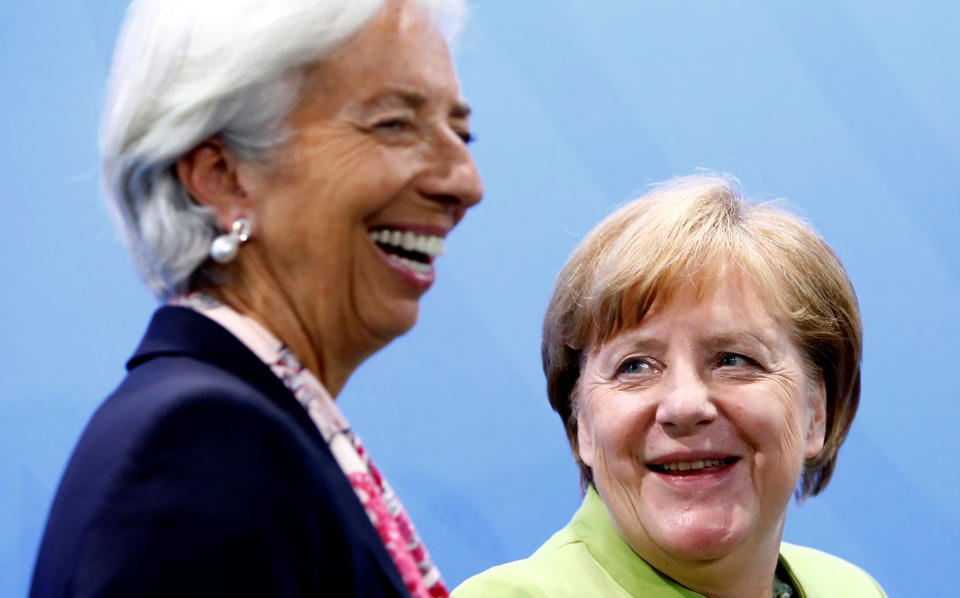Forbes crowns Angela Merkel as world's most powerful woman for ninth year running

Forbes has crowned Angela Merkel as most powerful woman in the world for the ninth year running.
The German chancellor has featured on Forbes’ World’s Most Powerful Women list a total of 14 times since it launched 16 years ago. Merkel has headed-up Europe’s most powerful economy for 14 years.
“Merkel remains the de facto leader of Europe, leading the regions largest economy after steering Germany through financial crisis and back to growth,” Forbes said. “Her leadership is marked by her steely reserve, from standing up to Donald Trump to allowing more than a million Syrian refugees into Germany,” Forbes said of Merkel.
The 65-year-old, who grew up in Communist-controlled East Germany, has stood up to any number of “strongman” leaders over the years, including Russian president Vladimir Putin, and seen three US presidents take office.
If she makes it to the end of her current term in 2021, she will have led the country for 16 years, equalling the current longest-serving chancellor Helmut Kohl. She has vowed she will not run for office again.
When asked at an event this summer what she hoped her legacy would be, she said with typical understatement: “She tried.”
However, the political landscape around Merkel has fragmented since the last general election in 2017, with the far-right Alternative for Germany making gains in many states, and the country experiencing a growth in anti-semitism, populism, and hate-speech.
READ MORE: Angela Merkel expresses Germany's 'deep shame' on visit to Auschwitz death camp
Merkel stepped down as chairwoman of the Christian Democrats (CDU) in 2018, after her centre-right party kept bleeding support, although the CDU continues to govern in a troubled coalition with the Social Democrats. She has been criticised by the German media of stepping away from the day-to-day governing of the country to carry out a more “elder stateswoman” role in her final years as a politician.
READ MORE: Merkel's government muddles on after SPD rules out abrupt exit
The Forbes list, which ranks the most influential women of the year, awarded second place to the new president of the European Central Bank, and former International Monetary Fund director, Christine Lagarde.
Nancy Pelosi, speaker of the US house of representatives, took third place, followed by Ursula von der Leyen in the fourth slot. Von der Leyen was the German defence minister before she became president of the European Commission this year.
In fifth place is General Motor’s trailblazing chief executive Mary Barra, who has held the post since 2014. Forbes notes that Barra “has invested billions in electric vehicles and self-driving cars.” With a salary of $21.9m in 2018, it said, she out-earns all automotive bosses in Detroit.

 Yahoo Finance
Yahoo Finance 